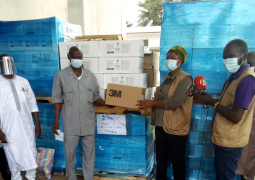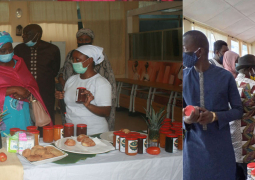
The Chemical Technical Committee aims to develop standards on all areasof the country’s economy that are related to chemicals in order to help NEAignite regulations on issues related to chemicals in the country.
The committee will standardise areas like vehicle emission to help government control the age limit of vehicles in the country. It would also help to standardise soap and paint to serve the public health effects of such products.
The Gambia Standard Bureau was established by an Act of Parliament in 2010 to standardise all products and goods consumed in The Gambia.
The committee comprises a representative of the University of The Gambia, NEA, TGSB, Gambia Transport Union, Chemical Society of The Gambia and other institution. UTG was nominated as chair holder.
Ebrima MusaJallow, director of standardisationsaid there are various issues that need to be standardised in the country and therefore, the institution deems it necessary to have a bank of experts on chemicals to ensure standardisation of products in the country.
He cited that vehicle pollution has been very common in the country, which could cause respiratory diseases; thus GSB felt the need to standardise vehicle emission.
Moving forward, on standardisation, he said soap and paint are key issues that would be standardised by the Chemical Technical team.
“The committee being experts on this sector can come-up with new suggestions on areas that they think are critical to the nation and need to be looked into and standardize,” he noted.
He said if the committee makes findings on particular products and comes withstandards, TGSB will immediately also look into the recommendation to know which product will standardise first.
He urged the chemical team to work collectively and consistently as well as engage their institutions to ensure sustainable development.
Bai Bittaye, programme officer on chemical and pesticide at the National Environmental Agency (NEA)said the committee will help to ensure standards and regulation.
He said some of the vehicles imported from Europe have reached their lifespan and therefore, there is a need for The Gambia to regularise the importation and usage of cars in the country.
“We need to have a regulation which cannot be in place without a baseline. That is why we had a survey to use it as a baseline to come up with a regulation,” he said.
Bittaye further said a study conducted by the Young Volunteer for the Environment (NEA) in partnership with NEA had revealed that some paints in the country has lead containing more than 100 PPM and the accepted WHO value is 90 PPM.





